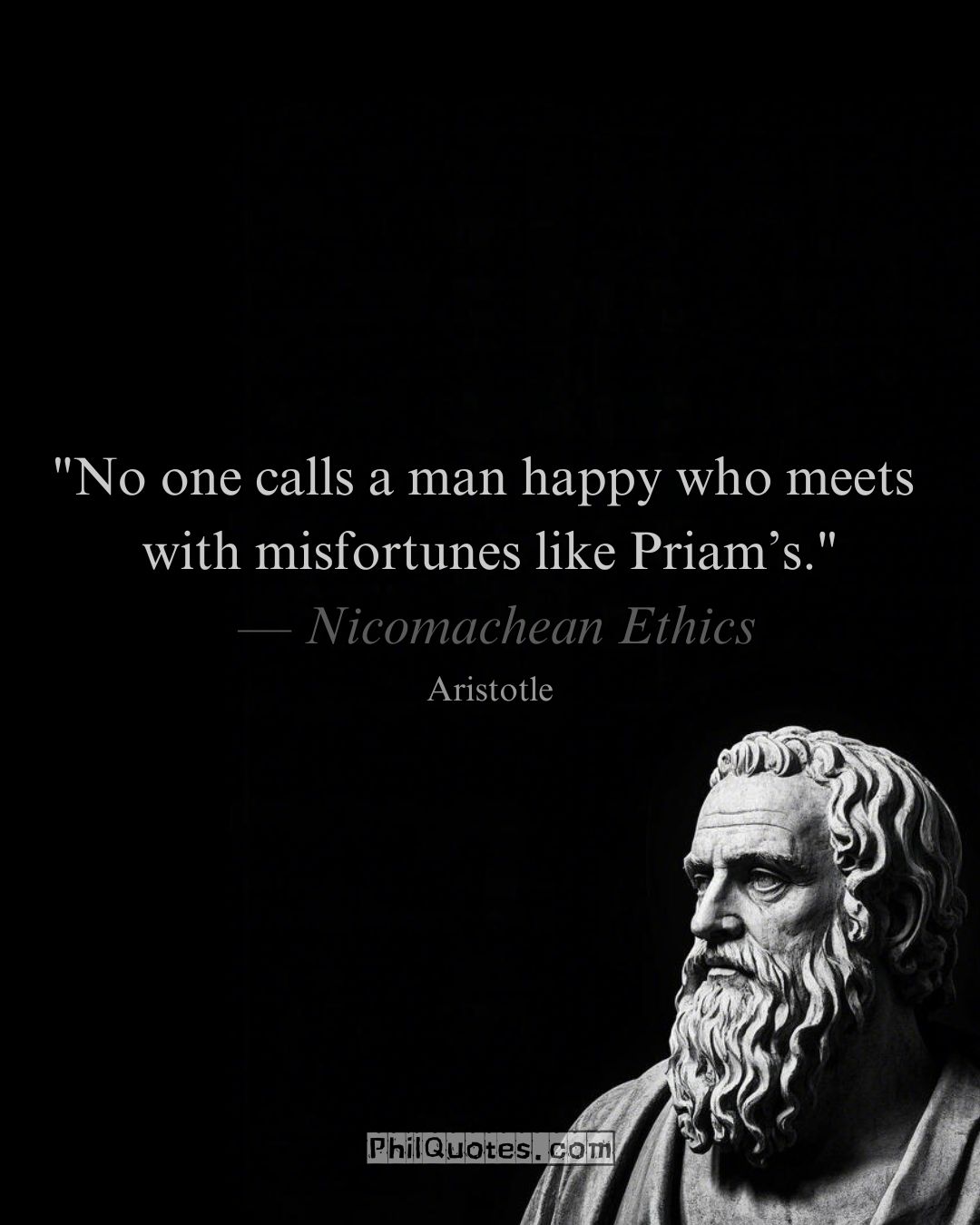
“No one calls a man happy who meets with misfortunes like Priam’s.”
— Aristotle, Nicomachean Ethics, Book I, Chapter 9
Simple Explanation:
Aristotle argues that extreme adversity (like Priam’s loss of kingdom and children in the Trojan War) can eclipse lifelong happiness — even for the virtuous. True eudaimonia requires both resilient virtue and external stability, akin to a lighthouse needing both sturdy walls and calm seas to guide ships.
Real-World Connection:
① Entrepreneur’s Downfall →
You build a 20-year ethical business → lose everything in a wildfire (Priam-level loss) → struggle to rebuild at 60 (happiness fragmented) → prove external stability’s irreplaceable role.
② Firefighter’s Paradox →
A hero saves 100 lives (virtue in action) → suffers career-ending injuries (sudden misfortune) → find purpose in mentoring (partial eudaimonia) → show happiness’s conditional wholeness.
③ The Hidden Threshold →
Aristotle’s warning: Happiness is not immune to catastrophe
- Preventive Armor: Financial safety nets, community bonds
- Post-Trauma Alchemy: Transforming grief into advocacy (e.g., gun violence survivors leading reform)
- Existential Audit: Regularly assessing life’s “fragility points” (health, relationships, purpose)